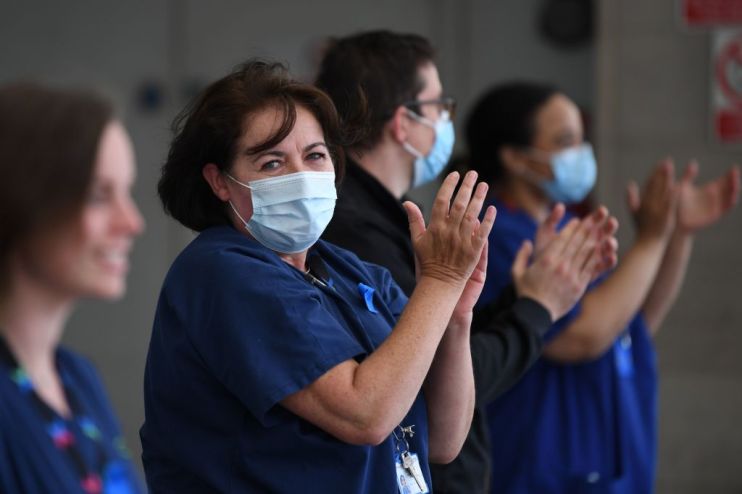Refugee nurses channelled into the NHS through new scheme

Refugee nurses are being channelled into the NHS as part of a Liverpool-based scheme, giving asylum seekers the opportunity to use their qualifications to live an independent life in the UK.
Palestinian national from Lebanon, Walid Jarad, had lived in just two t-shirts and two pairs of jeans for a whole year, until last month.
Living in three hotels and a shared house in London, Jarad, like most asylum seekers, was not allowed to work in the UK in his first year in the country.
Before fleeing political persecution in Lebanon, Jarad worked as a nurse in the intensive care unit for six years.
“I have so much experience in exactly the area that was needed,” Jarad told the BBC. “I’ve worked with so many isolated patients in intensive care respiratory units. My experience is completely relevant and I just couldn’t use it.”
Watching his medical experience go to waste during a global pandemic, Jarad now has a job as a healthcare assistant and will become a nurse in around six months with thanks to the programme.
Jarad will also be able to support himself on his salary, for the first time since landing in the UK.
“In this new job even giving a patient a glass of water feels totally amazing after not being able to do it for so long,” he said.
NHS Scheme
The NHS is already stretched for nurses, so the four-week scheme offers an opportunity to have practical exercises in an NHS hospital simulation environment, secure job interviews and learn English.
Giving refugees the resources to use their medical experience was an “absolute no-brainer”, according to Steven Colfar, director of nursing for the North West at NHS England and NHS Improvement.
Colfar, who developed the scheme at Liverpool John Moores University alongside charity Refuaid, said: “As healthcare professionals, they find it extremely difficult to restart their career.
“You land here, you have no support, often no money, no idea how to get registered and you’re just trying to survive. It’s so difficult to get into the NHS without some sort of structure to help you.”
All nurses have their qualifications and previous employment verified and are then helped to register with the UK’s Nursing and Midwifery Council (NMC).
The first pilot course ran in February, with Jarad was one of 14 refugees from Ethiopia, Sudan, Iran, Philippines, Gambia, Honduras and Myanmar, all referred by Refuaid.
“People are going from a position of total helplessness to a position that they could lead a real new life,” Colfar said, adding that “if we did not do anything they would be assigned to a life that would require social security support or a low paid job.”
“This is about making them realise the potential they already had. They will be able to be independent so the return on this little investment is huge.”
The second run of the course began in April and costs £2,150 per candidate. If they get a job after, nurses can then be offered £1,000 in relocation support while they wait for their first pay packet – funded by NHS England and Improvement.